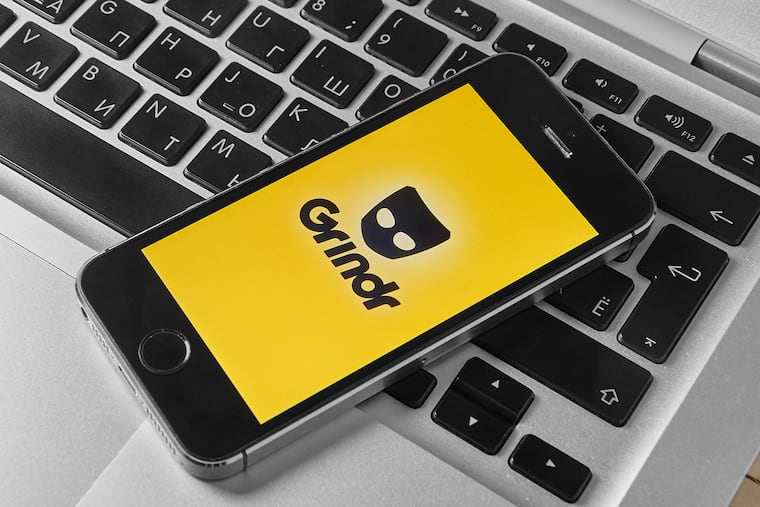Top U.S. Catholic church official resigns after cellphone data used to track him on Grindr and to gay bars
Monsignor Jeffrey Burrill has since last fall been the general secretary of the U.S. Conference of Catholic Bishops.

The top administrator of the U.S. Conference of Catholic Bishops resigned after a Catholic media site told the conference it had access to cellphone data that appeared to show he was a regular user of Grindr, the queer dating app, and frequented gay bars.
Monsignor Jeffrey Burrill has since last fall been the general secretary of the USCCB, a position that coordinates all administrative work and planning for the conference, which is the country's network for Catholic bishops. As a priest, he takes a vow of celibacy.
Burrill and the USCCB were not immediately available for comment Tuesday.
The National Catholic Reporter was the first to report Tuesday morning that Burrill had resigned, citing a memo from Archbishop Jose Gomez, the USCCB president, to other bishops. The Tuesday memo said it was "with sadness" that Gomez announced Burrill's resignation, saying the day before, the USCCB staff learned of "impending media reports alleging possible improper behavior."
Burrill is a priest from the La Crosse, Wis., diocese and was a parish priest and a professor before joining the administrative staff of the USCCB in 2016. Some USCCB staff and former staff said they were reeling and shocked.
USCCB spokeswoman Chieko Noguchi told The Washington Post on Tuesday afternoon it was Burrill's decision to resign, and came after allegations of his "improper behavior" were brought to the USCCB by the Pillar, a Catholic news site.
"However, to avoid becoming a distraction to the operations and ongoing work of the Conference, Monsignor has resigned effective immediately," read the statement from Gomez. "The Conference takes all allegations of misconduct seriously and will pursue all appropriate steps to address them."
In a Tuesday piece presenting the backstory, the Pillar reported that it had obtained information based on the data Grindr collects from its users, and hired an independent firm to analyze it.
"A mobile device correlated to Burrill emitted app data signals from the location-based hookup app Grindr on a near-daily basis during parts of 2018, 2019, and 2020 - at both his USCCB office and his USCCB-owned residence, as well as during USCCB meetings and events in other cities," the Pillar reported.
"The data obtained and analyzed by The Pillar conveys mobile app date signals during two 26-week periods, the first in 2018 and the second in 2019 and 2020. The data was obtained from a data vendor and authenticated by an independent data consulting firm contracted by The Pillar," the site reported. It did not identify who the vendor was or if the site bought the information or got it from a third party.
It wasn't clear who had collected the information about Burrill. USCCB spokespeople declined to answer questions Tuesday about what it knew about the information-gathering and what its leadership said about the information. They also declined to clarify if Burrill's alleged actions were tracked on a private or church-owned phone.
On Monday, the Catholic News Agency - the previous employer of Pillar journalists - published an unsourced story raising issues within the church about privacy and people allegedly tracking members of the clergy to catch those who use hookup apps such as Grindr. The story said "a person concerned with reforming the Catholic clergy approached some Church individuals and organizations" including CNA starting in 2018.
The report comes the same week as The Post and other organizations reported that military-grade spyware normally leased to governments for tracking terrorists and criminals was used in attempted and successful hacks of 37 smartphones belonging to journalists, human rights activists, business executives and others, revealing new concerns and issues around technology and privacy and democracy.